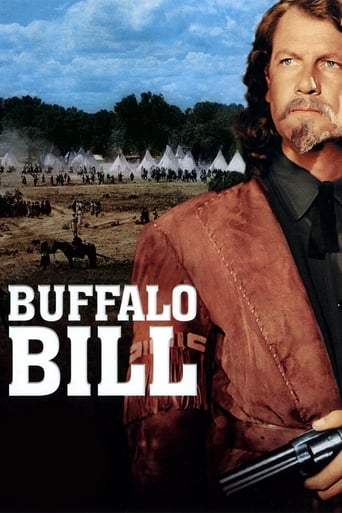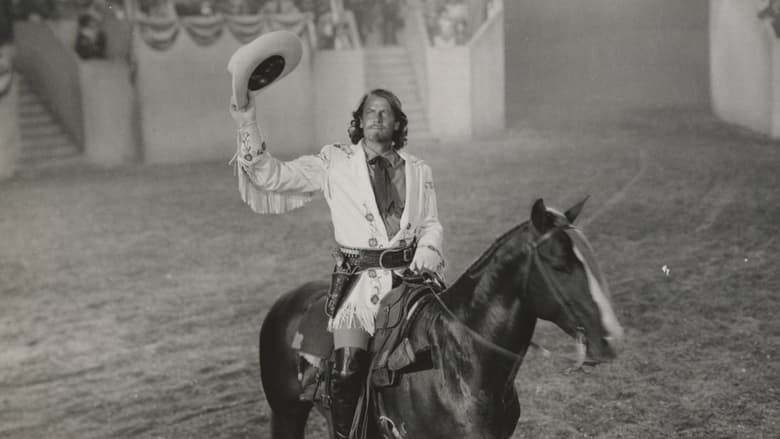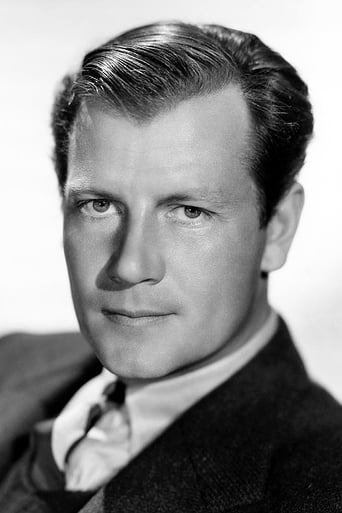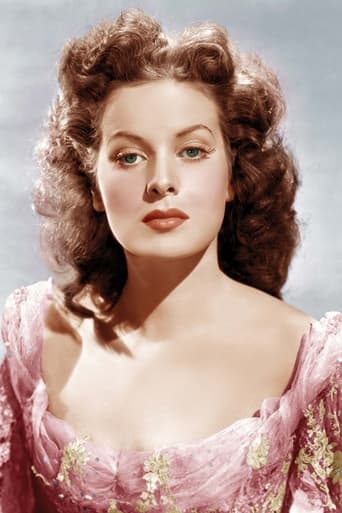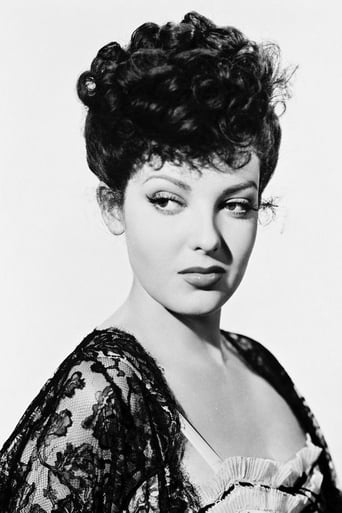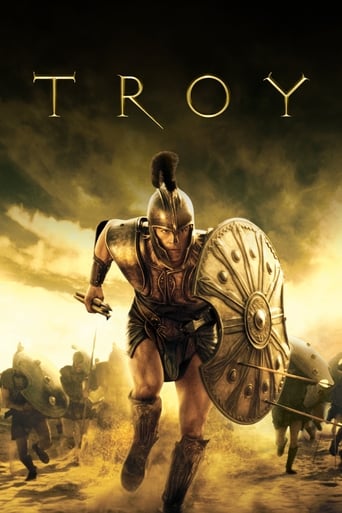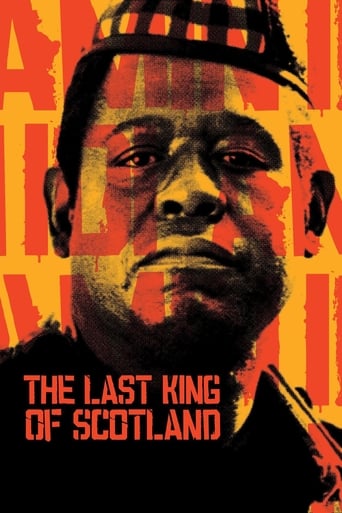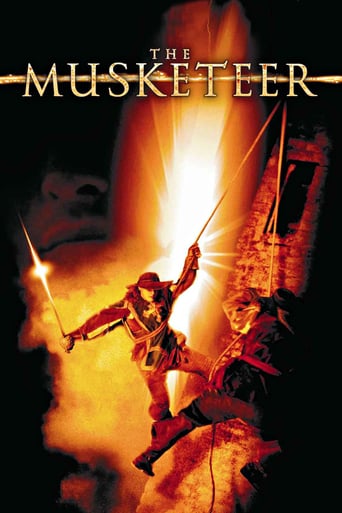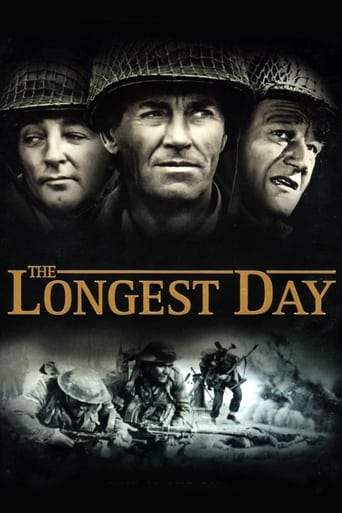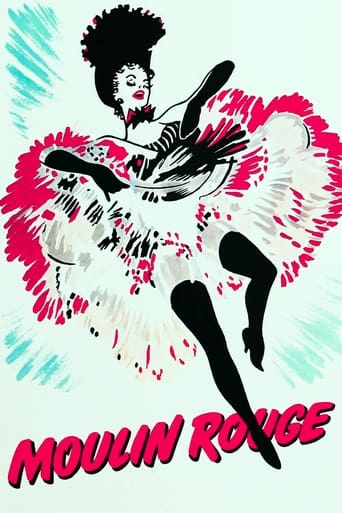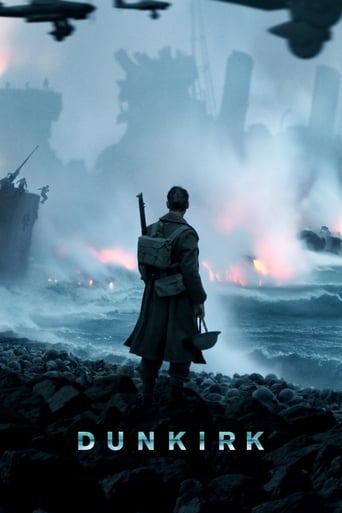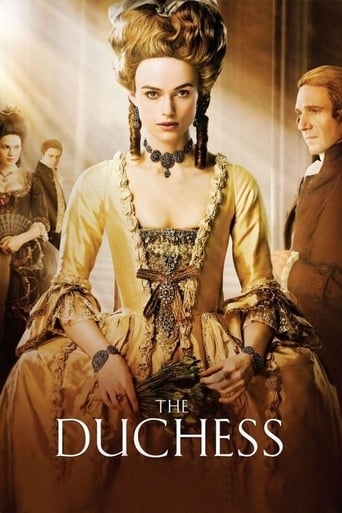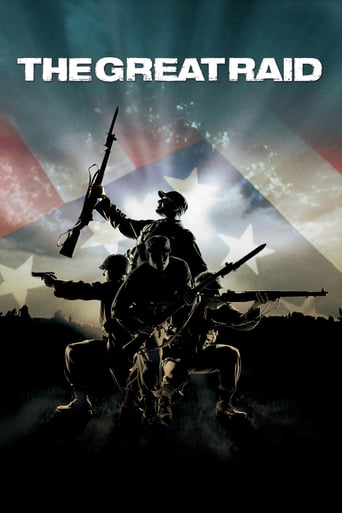Buffalo Bill (1944)
Scout William F. Cody (Joel McCrea) marries a U.S. senator's daughter (Maureen O'Hara), fights the Cheyenne and leads a Wild West show.
Watch Trailer
Cast


Similar titles
Reviews
Such a frustrating disappointment
Sick Product of a Sick System
Save your money for something good and enjoyable
Captivating movie !
A fascinating recreation of an American legend. Certainly it's not factual. Oddly, one of the few true elements, the hero's descent into side-showing, emerges as a too-familiar cliché, though given a bit of flesh here by McCrea's admirably stoic acceptance and the idea that he's forced into showmanship not by gambling or drink but by sheer financial necessity. In fact Buffalo Bill, the man, is presented as a composite of all the virtues, whilst Buffalo Bill, the picture, is handled with such gusto and panache, so breathtakingly and colorfully photographed, so full of marvelous action with running inserts of stampeding cavalry and Indians on the warpath — all set against superbly eye-catching locations — and so ingratiatingly narrated by Reed Hadley that one can't help but cheer such a grand epic show, produced on such a ding-dong lavish scale. Great technical credits too, including a vivid score and faultless special effects.All this is not to say that "Buffalo Bill" doesn't have its faults. Miss O'Hara is the worst. Looks about as much like a frontier lady as a bird of paradise imitating a sparrow. Even in labor, she's incredibly painted and groomed. In the tiniest of tiny roles, Linda Darnell wipes out Miss O'Hara in their one scene together. McCrea of course is ideally cast. Amongst the support players, we glimpse George Chandler as a sleepy cavalryman and Sidney Blackmer as Teddy Roosevelt. All are effective, with the one proviso that Charles Winninger's old-age make-up is a bit phony and he tends to over-do his usual mannerisms.If I wanted to carp, I could complain about some of the obvious studio back-drops (particularly in the opening scene). Yet despite its occasional faults (and unlike Wellman, I loved the close-out), Buffalo Bill is one exciting movie. What exactly was Wellman's gripe? Here it is: "I didn't like the picture, but I tried to do the best I could with it, but when that poor little crippled kid at the end stands up and says, "God bless you, too, Buffalo Bill", I felt absolutely nauseated."On the other hand, I'm sure Wellman would agree with me that generally the script has its heart in the right place, with pertinent comments to make on wild life preservation and the fate of the Vanishing American. "There are better ways to die," says Yellow Hand when the white man sets about killing off the precious buffalo, "it's a bad thing to starve..." while Cody himself is given the final word on the subject: Dawn Starlight has been killed in battle. Sadly, Cody carries her away. "A friend of yours?" asks the General. "They were ALL friends of mine," Cody quietly replies.
Buffalo Bill is directed by William A. Wellman and collectively written by Aeneas MacKenzie, Clements Ripley, Cecile Kramer and Frank Winch. It stars Joel McCrea, Maureen O'Hara, Linda Darnell, Anthony Quinn, Thomas Mitchell and Edgar Buchanan. A Technicolor production out of 20th Century Fox, with music by David Buttolph and cinematography by Leon Shamroy. The Sioux and the Cheyenne must strike together. No history lessons to be learned here, just the core essence of one William F. Cody and his life trajectory is used for entertainment purpose. Which if history is not what you are after, makes this a grandish production worth spending time with. 99% of the pic is given to his time out on the ranges as a pioneer, his romance with Louisa Frederici, and his political movements. His move into the Wild West showmanship that he would become famous for, is sadly dealt with in what is little more than a coda at story's end. Damn the East! As the story arc moves into the Indian War territory, this lets Wellman show his skills as a constructor of action sequences. The Sioux and the Cheyenne have joined forces and in spite of the arrogant claims by the army suits that the War will be over in a week, it proves to be anything but that. The battle here is that of Warbonnet Creek (AKA: Hat Creek), and it's brilliantly crafted by Wellman and his team, the highlight of the pic for sure, and a merciful change in direction after previously we had witnessed some on screen Buffalo killings, which while not shying from the reality of that moment in history, is still upsetting and tough to watch. I don't hold with General Sherman that a good Indian is a dead Indian. Other notable tech accomplishments are attained by Buttolph and Shamroy's respective work, while Wellman continues his fine direction with some nifty locomotive sequences. Acting wise the performances are just about good enough. McCrea and Quinn as Buffalo Bill and Yellow Hand (AKA: Yellow Hair) respectively, have the required amount of machismo and emotional fortitude to make the roles work, and crucially they convince in action scenes. O'Hara and Darnell get poorly written roles, but both are radiantly beautiful and costumed up to the nines, whilst Mitchell and Buchanan are solid as usual. Lively, colourful, emotional and fanciful, good entertainment for the Western movie lover, but maybe not the Western purists. 7/10
"Buffalo Bill" is a highly romanticized picture of 'Buffalo' Bill Cody. While IMDb is correct that most of the things in this biopic are actually based on Cody's real-life exploits, most of the relationship between him and his wife was pure hooey. Sadly, there was no great love in Cody's life--or if there was, it wasn't his wife! Most of their life was spent apart by his choice--and there were other women in his life. But, this image of Bill would not have gotten past censors back in 1944, so the studio fictionalized this aspect of his life. The rest, however, is reasonably accurate--something that surprised me as I watched the film. He was a scout for the US Army in the west, he fought in the Indian wars and he did start up an incredibly successful Wild West Show.Another aspect of the film that struck me was its treatment of the American Indians--particularly the Cheyenne. It was odd, as the major roles of the 'Indians' were played by Linda Darnell and Anthony Quinn!!! This insensitivity was pretty much the way American Indians were portrayed in American films through the 1950s. HOWEVER, despite this insensitivity, the film did correctly assert that the Indian wars were forced on these people due to how they were treated by the government. And, in this way, the film was much more balanced than many westerns of the day.Overall, a somewhat inaccurate film that looked nice and featured the excellent acting, as usual, by Joel McCrea. Worth seeing--just not exactly the Gospel! And, the final line of the film might make you throw up--so when that little kid in the audience stands up, PLUG YOUR EARS!!! By the way, the film made one HUGE mistake. General Sherman NEVER said "The only good Indian is a dead Indian". This quote was actually from General Sheridan--though it's not exactly what he said. When he was asked what a good Indian was like, he said very succinctly "...a dead one".
The most noticeable thing about this fairly routine Western is its sympathetic portrayal of the native American something of a rarity for a Hollywood film of the 40s. The white man is the villain here or, more specifically, the white man from the East who is unfamiliar with both the culture of the Indians and their needs. Coming from New York in their droves, they decimate the buffalo population as part of a fashion fad and uncaringly leave the starving Indian nation with no option but to go to war. Despite this sympathetic portrayal, stereotypes still abound. Anthony Quinn plays the legendary Yellow Hand, one-time friend of Cody, who has been educated by the White Man but still talks in that curious pigeon-English so beloved of Hollywood film-makers. And for all the Indian's nobility, whiteness is still something to which Indian squaw Linda Darnell still aspires. It's difficult to understand why she is included in the plot because she has little to do other than gaze longingly at an oblivious Cody. Even the writers don't seem to know what to do with her and end up having her bizarrely taking part in a pitched battle between Indians and cavalry.Joel McCrea plays Buffalo Bill and he is as reliable and unspectacular as you would expect McCrea to be. Cody himself is something of a paradox. Initially friendly with the Indian he sacrifices his position in order to save the father of the Eastern lass he has his eye on (a radiant Maureen O'Hara) and then helps organise guided hunting trips to give witless city types the opportunity to take part in the orchestrated massacre of the buffalo (perhaps, then, a better title for him would have been Buffalo-killer Bill?). Having helped drive his old friend Yellow Hand's tribe to the edge of extinction he then deliberately baits the Indian chief into a battle to the death to buy himself some time when out-numbered by the combined forces of the Sioux and Cheyenne. Despite later railing against the 'civilisation' that has claimed the life of his son, Cody then embraces that culture and finds a niche within it as an entertainer, recreating his exploits in a travelling sideshow before the titled heads of the world. When you think about it, this isn't exactly the most admirable of people we're learning about here, and you're left feeling that the writers really hadn't given much thought to the overall impression they were trying to give of the man.Although the film overall is something of a dull affair it's lifted by some good action sequences and early use of technicolor.

